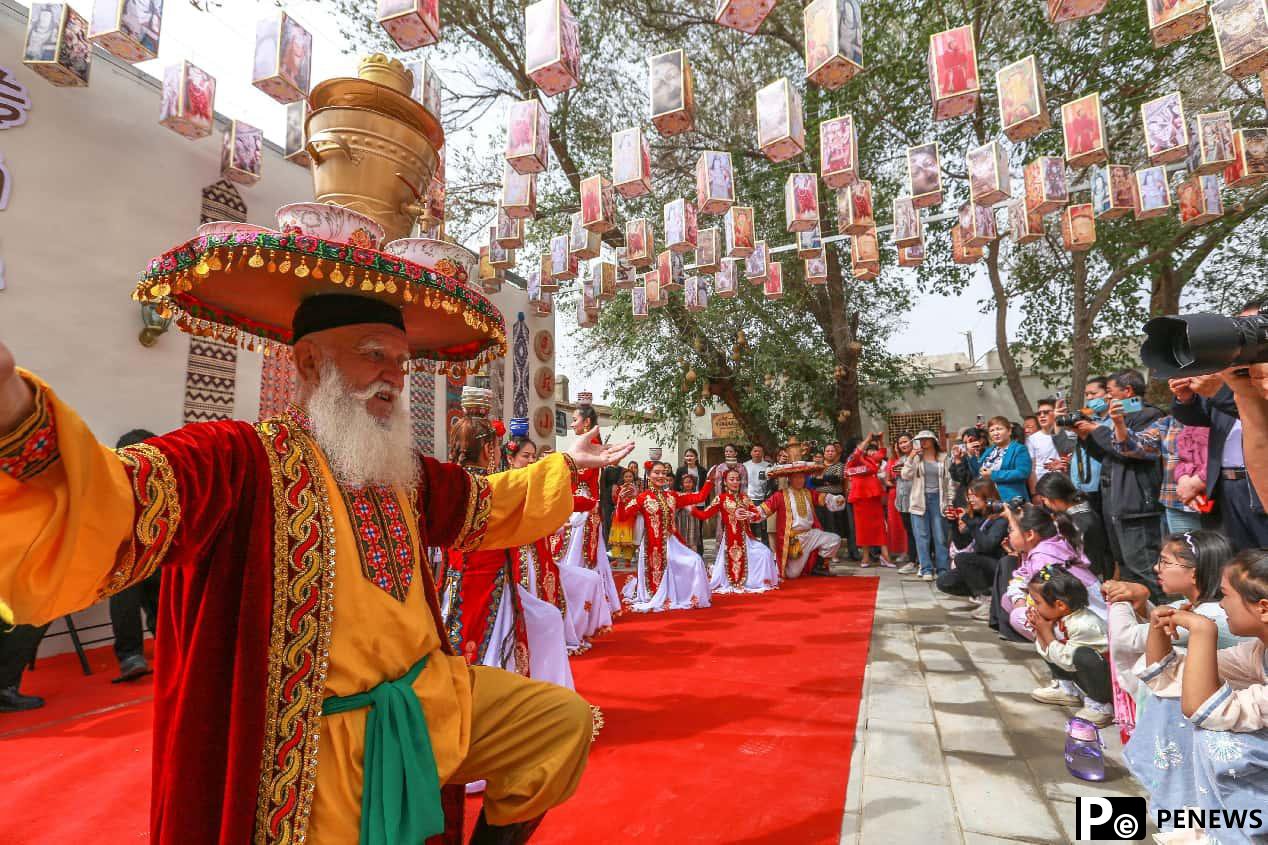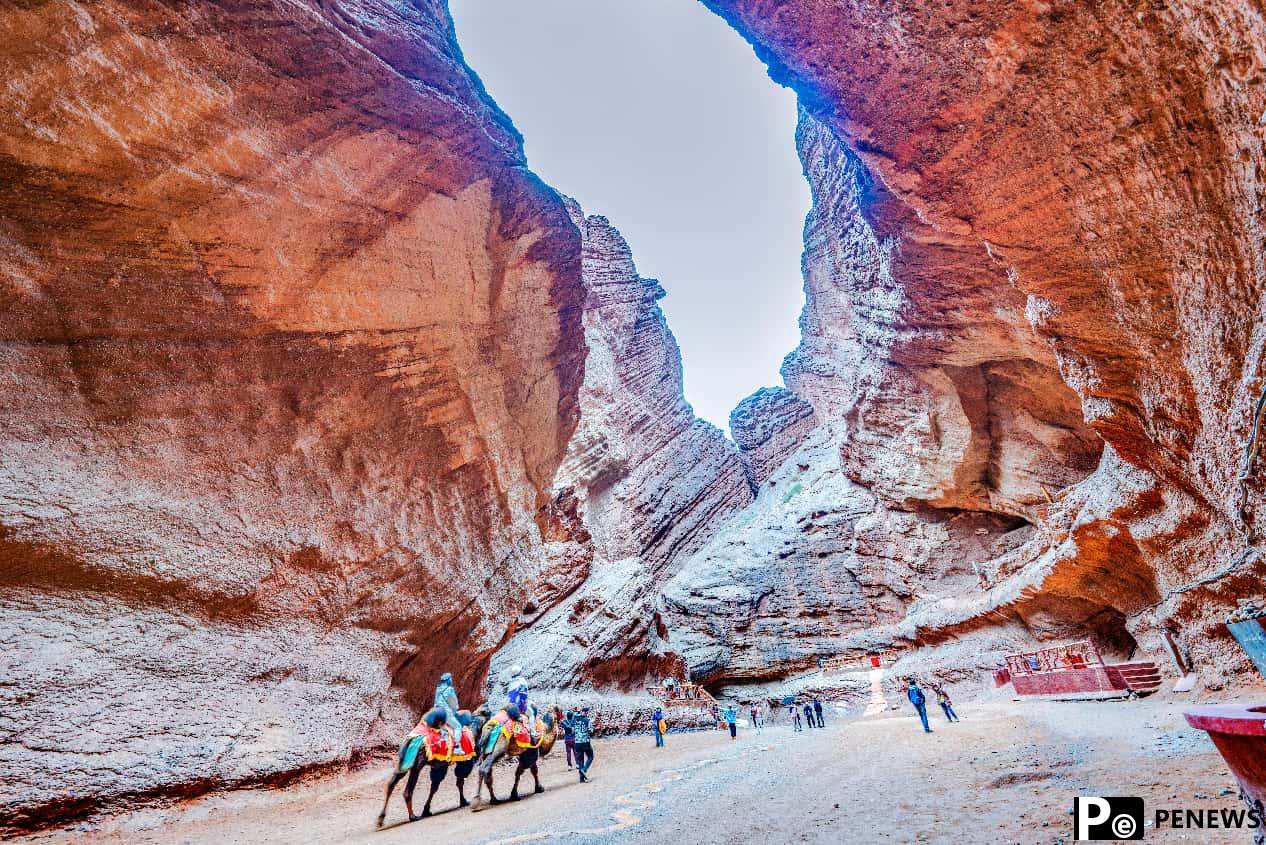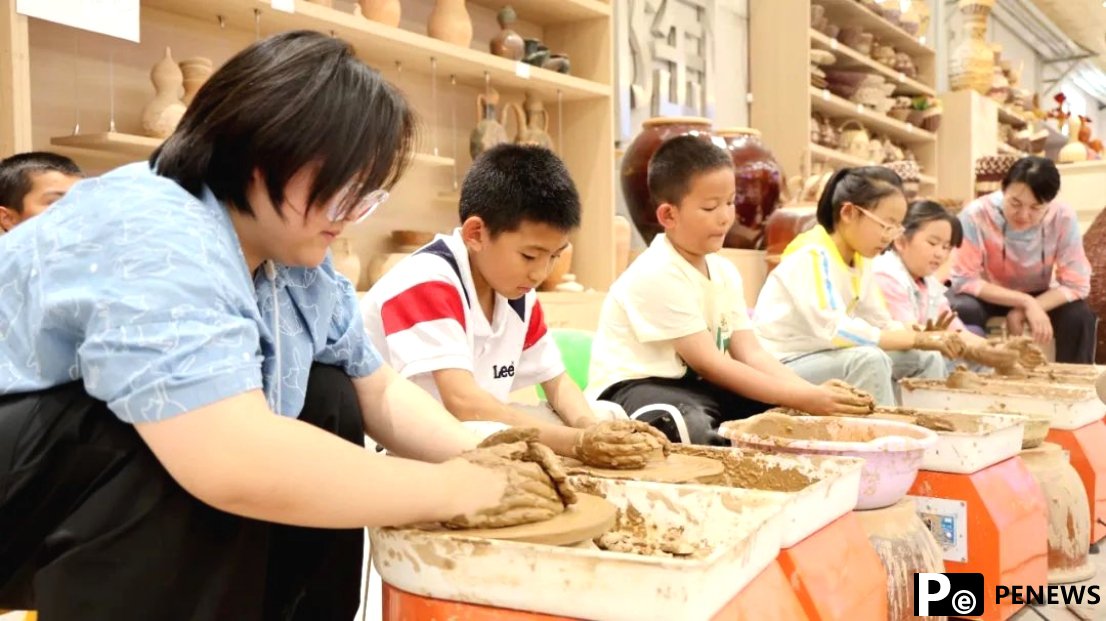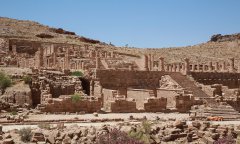Home>>People's Daily Online Exclusives
Kuqa in Xinjiang revitalizes its Silk Road legacy through culture and tourismBy Yang Mingfang, Aerdake (People's Daily) 13:53, May 30, 2025

A traditional dance performance is staged in Qiuci Lane, Kuqa, northwest China's Xinjiang Uygur Autonomous Region to welcome tourists. (Photo by Yuan Huanhuan/People's Daily Online)
At dawn, the scent of rose tea wafts from a teahouse tucked inside the alleys of ancient Kuqa city, Aksu prefecture, northwest China's Xinjiang Uygur Autonomous Region. Inside, owner Abdukader Mamtimin gently strums a dutar, a type of traditional long-necked, two-stringed lute, awaiting the day's first customers.
After finishing their tea, visitors often stroll into a nearby music and dance digital experience center, immersed in the beauty of ancient mural art.
When night descends, the starry dome of the Kuqa nang cultural complex sparkles under the stars, echoing with camel bells from theatrical performances, while the night market bustles with the energy of street vendors.
Kuqa, historically known as Qiuci, once served as the seat of the Anxi Protectorate during the Tang Dynasty (618-907) and stood as an important hub along the ancient Silk Road. As one of the historical and cultural cities that boast the longest history and richest cultural relics in Xinjiang, Kuqa is hailed as an "open-air museum." The Qiuci culture nurtured here is renowned for its distinctive artistic appeal and profound cultural depth.
In recent years, Kuqa has been bringing new vitality to its rich historical traditions by integrating cultural preservation with tourism, as part of a broader initiative known as "Cultural Enrichment of Xinjiang."
In 2012, China's State Council designated Kuqa as a state-level historical and cultural city. Since then, the local government has placed heritage conservation at the heart of its development agenda.

Tourists explore the dramatic landscapes of a national geological park in Kuqa, Aksu prefecture, northwest China's Xinjiang Uygur Autonomous Region, known for its glaciers and Yardang landform. (Photo by Zhu Hongsheng/People's Daily Online)
In 2023, Kuqa launched a project to renovate old residences, with a particular focus on its older dwellings. In collaboration with the Tsinghua Heritage Institute for Digitization, the project began with a comprehensive survey of traditional dwellings in the old towns of Kuqa. Renowned experts in heritage conservation were invited to train local craftsmen, ensuring that traditional techniques could be passed on and revived.
"We follow the principle of minimal intervention, using original materials and traditional craftsmanship whenever possible," explained He Yan, president of the Tsinghua Heritage Institute for Digitization.
The restoration focuses on preserving the architectural and historical authenticity of the dwellings while integrating cultural elements into revitalization efforts. Once-dilapidated alleyways have been transformed into vibrant spaces, attracting a steady stream of visitors while providing residents with new income streams.
"Our house was restored, more tourists are coming, and our income has gone up. Most importantly, our children are learning about Kuqa's rich history and culture," said local resident Memet Yimit.
In Kuqa's Resitan subdistrict, the delicate shimmer of Etles silk dances in the breeze, while the rhythmic clinking of handmade copperware rings through the space. This is the Qiuci intangible cultural heritage workshop, a vibrant hub of craftsmanship housed in a former grain warehouse, repurposed in 2024 to better preserve and innovate traditional craftsmanship.

Children experience traditional clay making in an intangible cultural heritage workshop in Kuqa, northwest China's Xinjiang Uygur Autonomous Region. (Photo by Wang Xueni)
The workshop features production zones, interactive visitor areas, traditional exhibition halls, and modern digital displays. It covers 25 categories of intangible cultural heritage, allowing visitors to explore craft-making processes, appreciate the intricacies of their creations, and purchase creative cultural products all in one stop. Since opening to the public in 2025, the workshop has attracted more than 8,000 visitors daily, becoming a vibrant new cultural landmark in Kuqa.
Kuqa is a repository of intangible cultural heritage, with 119 officially recognized representative items. To better protect and pass on these traditions, the city has taken a range of targeted measures. At the heart of these efforts is the Kuqa Cultural Center, which offers a wide range of training programs for traditional crafts. Its outreach extends beyond urban areas, bringing heritage education and artisanal skills to rural communities and helping integrate heritage practices into everyday life in the countryside.












